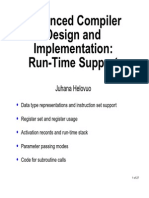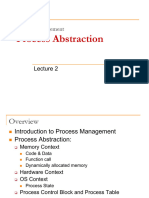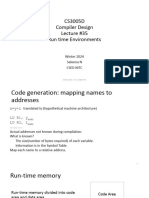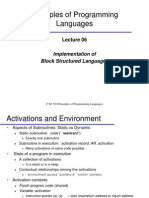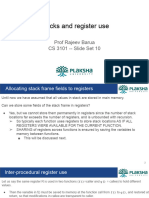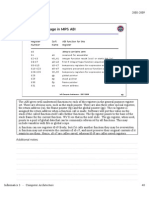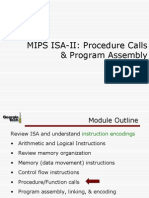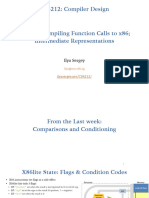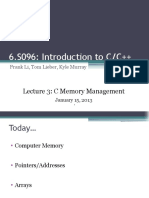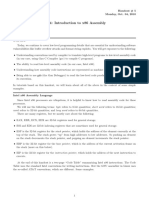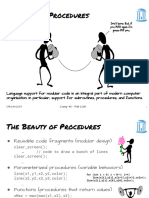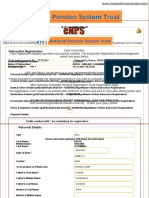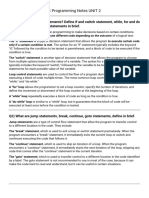0% found this document useful (0 votes)
30 views21 pagesStack Frames (Compilers)
The lecture discusses stack frames in compiler design, detailing the structure and management of the run-time stack during function calls. It explains the differences between assembly code and low-level intermediate representation, as well as the importance of calling sequences, stack pointers, and register management. Additionally, it covers the anatomy of stack frames, static links for nested functions, and the overall memory layout including global and heap variables.
Uploaded by
b'stard/tempestCopyright
© © All Rights Reserved
We take content rights seriously. If you suspect this is your content, claim it here.
Available Formats
Download as PDF, TXT or read online on Scribd
0% found this document useful (0 votes)
30 views21 pagesStack Frames (Compilers)
The lecture discusses stack frames in compiler design, detailing the structure and management of the run-time stack during function calls. It explains the differences between assembly code and low-level intermediate representation, as well as the importance of calling sequences, stack pointers, and register management. Additionally, it covers the anatomy of stack frames, static links for nested functions, and the overall memory layout including global and heap variables.
Uploaded by
b'stard/tempestCopyright
© © All Rights Reserved
We take content rights seriously. If you suspect this is your content, claim it here.
Available Formats
Download as PDF, TXT or read online on Scribd
/ 21

